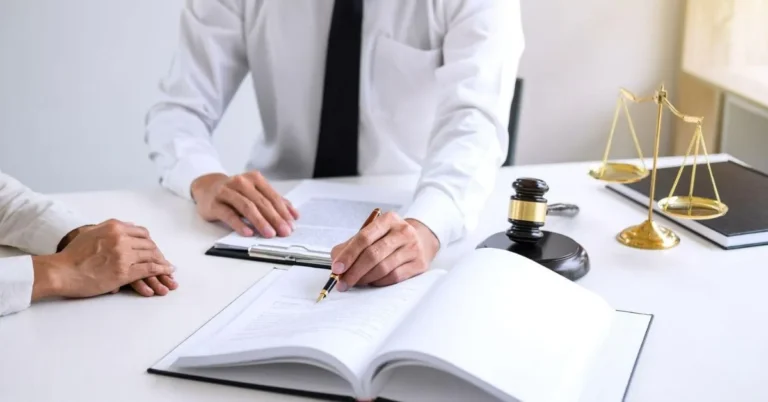Non-Economic Damages Victims Can Recover Through a Wrongful Death Case
Losing a loved one unexpectedly is a devastating experience. The emotional pain and financial strain can feel overwhelming. While no amount of money can truly replace the loss of a loved one, a wrongful death lawsuit can help recover compensation for the damages caused by the death. This compensation includes not only economic losses but also non-economic damages that acknowledge the intangible losses suffered by surviving family members.
Understanding these non-economic damages is crucial for anyone considering pursuing a wrongful death claim. Call an experienced wrongful death lawyer to discuss the specific details of your case and determine the full scope of damages you may be entitled to recover.
What are Non-Economic Damages?
Economic damages in a wrongful death case are those with a clear monetary value, such as medical bills, lost wages of the deceased, and funeral expenses. Non-economic damages, on the other hand, are more subjective in nature. They aim to compensate for the emotional and intangible losses resulting from the wrongful death. These damages can be significant and have a lasting impact on the surviving family members.
Here are some of the most common types of non-economic damages recoverable in a wrongful death case:
- Loss of companionship: This refers to the loss of the deceased’s presence, guidance, love, affection, and support. It can encompass the loss of shared activities, experiences, and the emotional bond between the deceased and the surviving family.
- Mental and emotional anguish: This includes the grief, sorrow, depression, anxiety, and other emotional distress caused by the wrongful death. These damages encompass the immediate shock and pain of loss as well as the ongoing emotional toll the death takes on surviving family members.
- Loss of consortium: This is a specific type of non-economic damage available to spouses of the deceased. It compensates for the loss of love, intimacy, physical relations, and companionship within the marriage.
- Loss of parental guidance: This damage is recoverable by minor children who have lost a parent. It compensates for the loss of the deceased parent’s love, care, support, guidance, and nurturing. In some cases, it may also include the loss of financial support the parent would have provided.
- Loss of inheritance: If the deceased had a reasonable expectation of future wealth or earnings, their untimely death can deprive surviving family members of a potential inheritance. Wrongful death lawsuits can recover compensation for this lost inheritance.
- Loss of enjoyment of life: This damage acknowledges the impact the deceased’s death has on the surviving family’s ability to enjoy life. It may encompass the loss of shared activities, vacations, and the overall diminished quality of life due to the absence of the deceased.
Factors Determining Non-Economic Damages Awards
The amount of non-economic damages awarded in a wrongful death case can vary significantly, depending on several factors. Some of the key considerations include:
- The relationship between the deceased and the surviving family member(s). Closer relationships typically result in higher non-economic damage awards.
- The age and life expectancy of both the deceased and the surviving family members. Younger individuals with longer life expectancies may warrant higher awards due to the longer duration of the loss.
- The nature and severity of the emotional distress experienced by the surviving family members. Evidence of ongoing grief, depression, anxiety, or other mental health issues can strengthen the claim for non-economic damages.
- The deceased’s personality and contributions to the family. A spouse who was the primary caregiver, or a parent who was actively involved in their children’s lives, may justify a higher award for the loss of companionship and guidance.
In some states, there may be caps on the amount of non-economic damage that can be awarded. An experienced wrongful death lawyer can advise you on the specific laws in your jurisdiction and help you develop a strong case to maximize the non-economic damage award you are entitled to receive.

Evidence to Support Non-Economic Damages Claims
Proving non-economic damages can be challenging because they are subjective in nature. However, there are several types of evidence that can be used to support your claim, such as:
- Testimony from surviving family members: Their firsthand accounts of the emotional pain and loss they are experiencing can be a powerful tool for juries to understand the impact of the wrongful death.
- Expert testimony: Psychologists, therapists, or other mental health professionals can provide expert opinions on the emotional distress suffered by the surviving family members.
- Documentation of mental health treatment: Records of therapy sessions, medications prescribed, or diagnoses related to emotional distress can strengthen your claim.
Importance of an Experienced Wrongful Death Lawyer
Navigating the complexities of a wrongful death lawsuit, especially when it comes to proving non-economic damages, requires the expertise of a qualified wrongful death lawyer. An experienced attorney will:
- Investigate the cause of death: They will thoroughly investigate the circumstances surrounding the death to establish negligence or wrongdoing on the part of the defendant.
- Identify all potential damages: Your lawyer will identify all the damages you may be entitled to recover, including both economic and non-economic losses.
- Gather evidence to support your claim: They will collect and organize evidence to support your claim for non-economic damages, such as witness testimonies, expert opinions, and documentation of emotional distress.
- Negotiate with the insurance company: Your lawyer will negotiate with the insurance company representing the defendant to obtain a fair settlement for your claim.
- Represent you in court: If negotiations fail, your lawyer will represent you in court and argue your case before a jury.
The emotional toll of losing a loved one can be overwhelming. A wrongful death lawsuit can help you recover compensation for the financial burden and emotional losses you and your family have suffered. An experienced wrongful death lawyer can guide you through the legal process, ensure you receive fair compensation for both economic and non-economic damages, and achieve justice for your loved one’s wrongful death.






